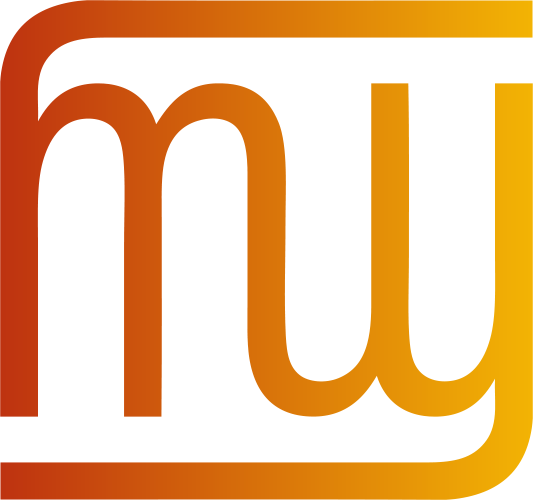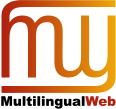 The W3C Internationalization (I18n) Activity works with W3C working groups and liaises with other organizations to ensure Web technologies work for everyone, regardless of their language, script, or culture.
The W3C Internationalization (I18n) Activity works with W3C working groups and liaises with other organizations to ensure Web technologies work for everyone, regardless of their language, script, or culture.
From this page you can find articles and other resources about Web internationalization, and information about the groups that make up the Activity.
Read also about opportunities to participate and fund work via the new Sponsorship Program.
What the W3C Internationalization Activity does
Selected quick links
Selected quick links
Selected quick links
New translations into Romanian
Controlere Unicode vs. marcare pentru sprijinul bidi (Unicode controls vs. markup for bidi support)
Dimensiunea textului in traduceri (Text size in translation)
O introducere in Adresele Web Multilingve (An Introduction to Multilingual Web Addresses)
These articles were translated into Romanian thanks to Costea Marian.
Draft for review: Personal names around the world
Comments are being sought on the article Personal names around the world prior to final release. This article addresses the question “How do people’s names differ around the world, and what are the implications of those differences on the design of forms, ontologies, etc. for the Web?”.
Please send any comments to www-international@w3.org (subscribe) by 7th August.
By Richard Ishida, W3C.
New version of the Internationalization Checker released
The ‘i18n checker‘ is a free service by W3C that provides information about internationalization-related aspects of your HTML page, and advice on how to improve your use of markup, where needed, to support the multilingual Web.
This latest release uses a new user interface and redesigned source code. It also adds a number of new tests, a file upload facility, and support for HTML5.
This is still a ‘pre-final’ release and development continues. There are already plans to add further tests and features, to translate the user interface, to add support for XHTML5 and polyglot documents, to integrate with the W3C Unicorn checker, and to add various other features. At this stage we are particularly interested in receiving user feedback.
Try the checker and let us know if you find any bugs or have any suggestions.
New translations into Hungarian
Gyors tippek a web internacionalizálásához (Internationalization Quick Tips for the Web)
A b és i elemek használata (Using b and i elements)
A böngészőből jövő kérés nyelvi beállításai (Accept-Language used for locale setting)
Karakterkódolás deklarálása CSS-ben (Declaring character encodings in CSS)
A HTTP karakterkészletének (charset) paraméterezése (Setting the HTTP charset parameter)
These articles were translated into Hungarian thanks to Petra Csobanka.
New translations into German
Textlänge bei Übersetzungen (Text size in translation)
Nicht-englische Tags (Non-English tags)
xml:lang in XML-Dokument-Schemas (xml:lang in XML document schemas)
Überprüfung der Zeichencodierung mit dem Validator (Checking the character encoding using the validator)
These articles were translated into German thanks to Gunnar Bittersmann.
Updated article: xml:lang in XML document schemas
“RFC 3066 (or it successors)” was changed to “BCP 47”.
Links to the techniques index were added to the section “Further Reading”.
The translations were updated with the same changes.
New translations into German
Einstellung der bevorzugten Sprachen im Browser (Setting language preferences in a browser)
Einrichtung von MultiViews-Sprachvereinbarung auf Apache (Apache MultiViews language negotiation set up)
These articles were translated into German thanks to Gunnar Bittersmann.
Updated Working Group Note: Working with Time Zones
An updated version of Working with Time Zones has just been published as a Working Group Note.
Date and time values can be complex and the relationship between computer and human timekeeping systems can lead to problems. The working group has updated this version to contain more comprehensive guidelines and best practices for working with time and time zones in applications and document formats. Use cases are provided to help choose an approach that ensures that geographically distributed applications work well. This document also aims to provide a basic understanding and vocabulary for talking about time and time handling in software.
Editor: Addison Phillips, Lab126.
New translations into Russian and Ukrainian
Ukrainian:
Перехід на Unicode (Migrating to Unicode)
Russian:
Переход на Unicode (Migrating to Unicode)
These articles were translated thanks to Alexandr Shlapak.
MultilingualWeb workshop, Limerick, speaker deadline approaching!

This is reminder to register for the upcoming W3C MultilingualWeb workshop in Limerick, Ireland, 21-22 September 2011. (Co-located with the 16th Annual LRC Conference.)
See the Call for Participation for details about how to register for the workshop and propose a talk. Participation in the workshop is free.
The MultilingualWeb workshops, funded by the European Commission and coordinated by the W3C, look at best practices and standards related to all aspects of creating, localizing and deploying the multilingual Web. The workshops are successful because they attracted a wide range of participants, from fields such as localization, language technology, browser development, content authoring and tool development, etc., to create a holistic view of the interoperability needs of the multilingual Web.
We look forward to seeing you in Limerick!
